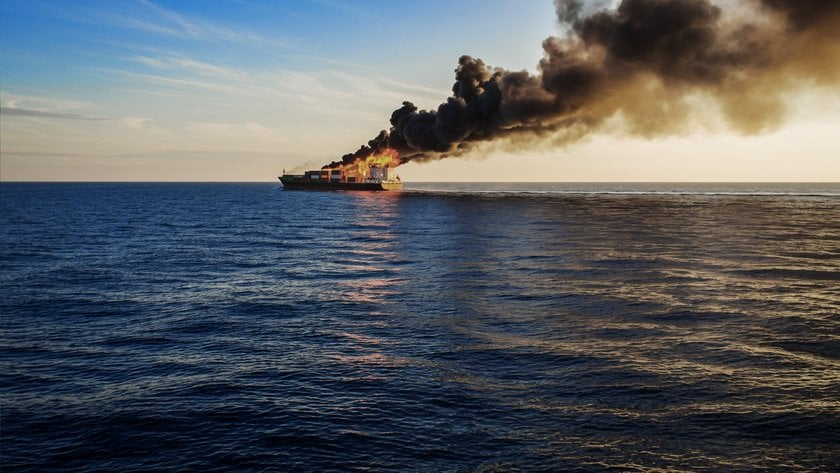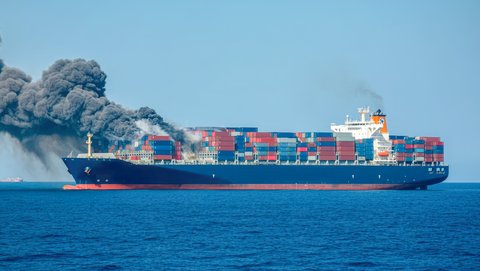In container shipping, accuracy is not just a matter of compliance; it is the foundation of safety. Yet, mis-declared cargoes continue to pose one of the most serious risks to global trade. Incorrect weight declarations, undeclared hazardous goods, or incomplete documentation can all lead to severe consequences for vessels, crews, and the environment. According to the World Shipping Council (WSC), more than ten percent of inspected shipments show deficiencies, and this trend is moving in the wrong direction.
The implications are clear: every mis-declared container is a potential hazard that can disrupt supply chains and endanger lives.
Why Misdeclaration Happens
The reasons behind misdeclaration are complex. In some cases, shippers deliberately provide false information to avoid higher freight rates or bypass regulatory requirements. Others make mistakes unintentionally, often due to the complexity of global supply chains, lack of awareness, or inadequate documentation processes.
There are also systemic issues. Enforcement remains inconsistent across regions, and fragmented oversight creates gaps that allow errors to slip through. These factors combined make misdeclaration a persistent challenge for the entire industry.
The Risks are Real
The consequences of mis-declared cargoes go far beyond administrative inconvenience. Fires on board container vessels have reached their highest level in more than a decade, and mis-declared dangerous goods are a leading cause. The risks include:
- Safety Hazards: Fires, explosions, and vessel instability that put crews and ships in immediate danger
- Operational Disruptions: Delays, costly re-routing, and customs complications that ripple through supply chains
- Financial Impact: Heavy fines, insurance claims, and reputational damage that can take years to repair
When a single container can trigger a catastrophic incident, the importance of accurate declarations cannot be overstated.
Industry Response: Raising the Bar
The shipping industry has recognized the urgency of this issue and is taking action. Leading carriers have introduced strict penalties for misdeclaration. Maersk, for example, now imposes fines of up to 30,000 US dollars per container for Verified Gross Mass (VGM) violations.
Beyond penalties, the WSC has launched its Cargo Safety Program, a major initiative designed to prevent incidents before they occur. The program combines advanced digital tools with standardized processes:
- AI-powered screening of millions of bookings in real time
- Common inspection standards to harmonize safety practices across carriers
- Incident feedback loops to ensure lessons learned translate into stronger prevention measures
Collaboration with the International Maritime Organization (IMO) remains essential. Global frameworks such as SOLAS, the IMDG Code, and the CTU Code provide the regulatory backbone for safe cargo handling. However, these rules only work when consistently applied across the industry.
Technology as a Game-Changer
Digitalization is transforming how the industry addresses cargo safety. Artificial intelligence now scans booking data in real time, identifying suspicious patterns and flagging high-risk shipments before they are loaded. Data analytics adds another layer by recognizing trade anomalies that might indicate misdeclaration.
Shared platforms are also gaining traction, allowing carriers to exchange information and improve transparency. These tools do not replace the responsibility of shippers to declare cargo accurately, but they provide an additional safety net that can prevent accidents and save lives.
The Future of Cargo Safety
Looking ahead, three priorities stand out. First, global standards must continue to evolve to prevent a patchwork of national regulations that complicate compliance. Second, shippers must embrace their responsibility. Accurate declarations are not optional; they are a legal requirement and a moral obligation. Finally, safer cargo handling supports sustainability goals by reducing the risk of environmental damage and ensuring resilient supply chains.
How We Support Compliance
At Leschaco, we believe that cargo integrity is a shared responsibility. Our approach combines regulatory expertise, advanced technology, and operational excellence:
- Comprehensive knowledge of international regulations such as the IMDG Code and CTU Code
- Digital tools that provide real-time visibility and proactive risk management
- Tailored solutions to ensure safe, compliant, and efficient shipping for every customer
By aligning technology with human expertise, we help our customers navigate the complexities of global trade while maintaining the highest safety standards.
Mis-declared cargoes are not just a compliance issue. They are a critical safety challenge that demands vigilance, innovation, and collaboration. Together, we can reduce risks, protect lives, and keep global trade moving safely.







